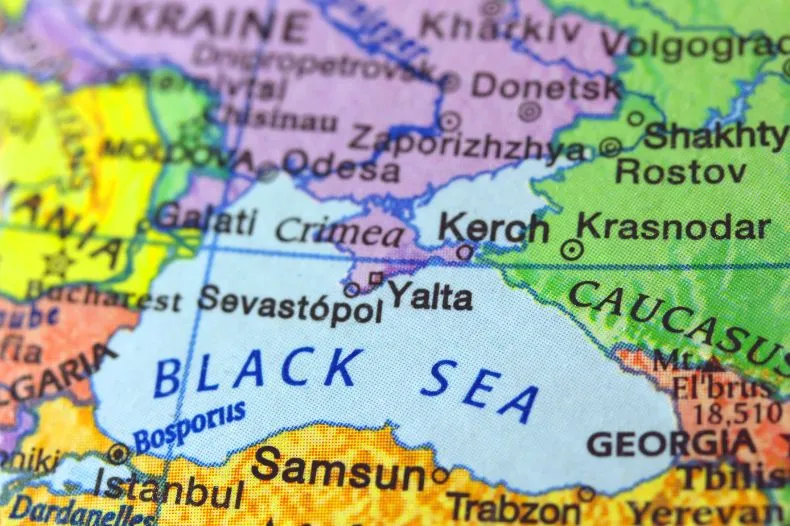
The Black Sea, shrouded in myths and legends, is home to a diverse ecosystem that has piqued the curiosity of many. Among the questions that arise is, “Are there sharks in the Black Sea?” Join us on a journey to explore the aquatic wonders of this ancient sea and uncover the reality behind the presence of sharks in its waters.
Located between Southeastern Europe and Asia Minor, the Black Sea stands as a pivotal geographic and ecological entity, renowned for its distinctive characteristics and rich biodiversity.
Spanning an area of approximately 436,400 square kilometers, this inland sea serves as a nexus of historical, cultural, and ecological significance. The Black Sea’s unique ecosystem stems from its geographical isolation and specific environmental conditions.
Characterized by limited exchange with surrounding bodies of water and a delicate balance of freshwater inflow from rivers and saltwater intrusion from the Mediterranean, the sea fosters a diverse array of flora and fauna. Its depths harbor a wealth of marine life, ranging from microscopic organisms to larger vertebrates.
One of the defining features of the Black Sea ecosystem is its anoxic, or oxygen-depleted, deeper layers. This phenomenon restricts the presence of many oxygen-dependent species to the upper layers, creating distinct ecological niches and fostering unique adaptations among its inhabitants.
Despite its ecological richness, the Black Sea faces numerous challenges, including pollution, overfishing, and habitat degradation.
Efforts to mitigate these threats are crucial for preserving the integrity of the ecosystem and ensuring the long-term sustainability of its resources.
Addressing the question of whether great white sharks inhabit the Black Sea, it is important to note that historically, there have been no confirmed sightings or documented evidence of great white sharks in these waters.
The species typically inhabits temperate and tropical coastal waters, primarily in regions such as the Pacific and Atlantic Oceans.
However, the Black Sea’s ecological dynamics and changing environmental conditions raise intriguing questions about the potential for shifts in species distribution and the future of its marine biodiversity.
The Black Sea’s unique ecosystem represents a fascinating intersection of geographical, ecological, and cultural influences. While challenges persist, efforts to understand and protect this vital marine environment are essential for safeguarding its biodiversity and ensuring its sustainable use for future generations.
Are there Sharks in the Black Sea? Debunking Misconceptions
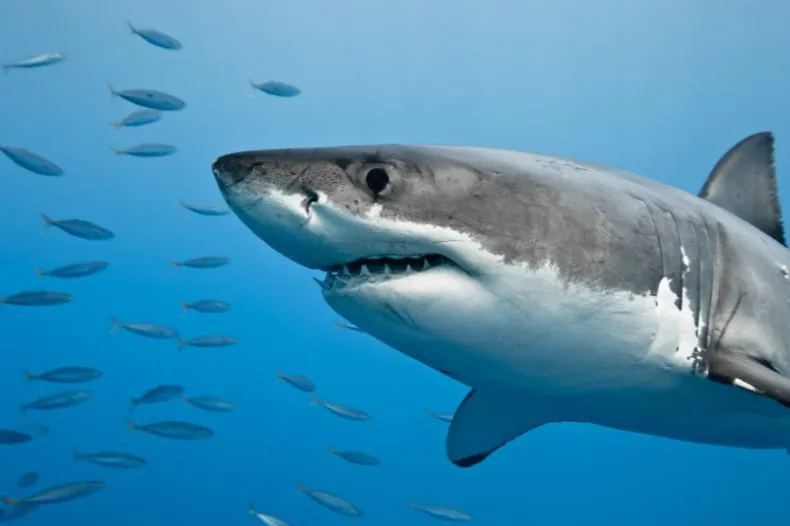
Are there Sharks in the Black Sea?
No, there are no sharks native to the Black Sea. The Black Sea is a relatively shallow body of water, and its salinity is lower compared to many other seas and oceans, making it less suitable for many shark species.
Misconceptions about sharks in the Black Sea often arise from a lack of familiarity with the region’s unique marine ecology. One prevalent myth is the existence of great white sharks in these waters.
However, there is no verified evidence of great white sharks inhabiting the Black Sea. This species typically thrives in temperate and tropical coastal regions, making the Black Sea’s environment unsuitable for them.
Contrary to popular belief, the Black Sea is home to several shark species that have adapted to its specific conditions. Among these are the spiny dogfish, blue shark, and various catsharks.
These sharks have evolved to thrive in the Black Sea’s environment, which includes anoxic deeper layers and limited exchange with surrounding bodies of water.
Another misconception is the perceived danger of shark attacks in the Black Sea. While sharks are present in these waters, attacks on humans are exceedingly rare. Sharks typically do not view humans as prey and, in most cases, avoid interactions with humans altogether.
Dispelling these misconceptions is essential for fostering a better understanding of the Black Sea’s marine ecosystem and promoting conservation efforts.
By recognizing the true nature of the region’s shark population, we can work towards protecting and preserving this vital ecosystem. Education and awareness play crucial roles in mitigating unfounded fears and promoting coexistence between humans and sharks in the Black Sea.
Ultimately, a deeper understanding of the Black Sea’s sharks can lead to greater appreciation and stewardship of this remarkable marine environment.
Understanding the Scarcity of Sharks in the Black Sea
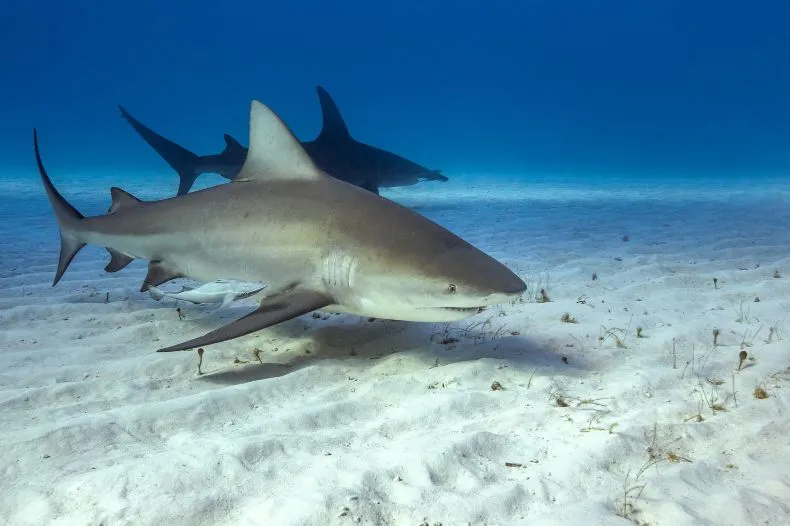
Sharks are notably scarce in the Black Sea, primarily due to a combination of environmental factors and geographic isolation.
The Black Sea’s unique characteristics create a habitat that is less conducive to shark populations compared to other marine regions.
One key factor is the Black Sea’s limited connection to surrounding bodies of water. Unlike oceans with extensive inter-connectivity, the Black Sea is relatively isolated, with restricted access to other seas.
This isolation reduces the likelihood of sharks migrating into the Black Sea from neighboring regions. Furthermore, the Black Sea’s salinity levels differ significantly from those of oceans.
While it is a saltwater body, the Black Sea experiences lower salinity levels due to its freshwater inputs from numerous rivers, including the Danube and Dnieper.
These lower salinity levels may not provide an ideal environment for many shark species, which typically prefer higher salinity waters.
Additionally, the Black Sea’s oxygen-depleted deeper layers pose challenges for marine life, including sharks. The phenomenon of anoxia restricts the presence of oxygen-dependent species to the upper layers of the sea, creating limited habitats for sharks and other marine organisms in deeper waters.
Historically, the absence of large predatory sharks in the Black Sea has also contributed to the ecosystem’s equilibrium. Without significant predation pressure from sharks, other marine species have thrived and occupied ecological niches within the Black Sea.
While the Black Sea does support a diverse array of marine life, including various fish species and marine mammals, the presence of sharks remains relatively rare.
Understanding these environmental factors is essential for comprehending the dynamics of the Black Sea’s marine ecosystem and its unique biodiversity.
Diverse Marine Life of the Black Sea
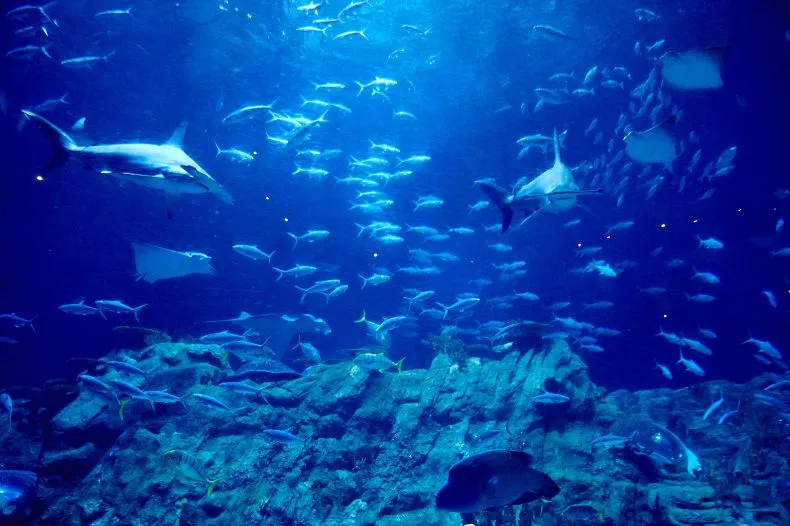
The Black Sea, although relatively isolated and distinct in its ecological dynamics, hosts a diverse array of marine life. Despite its name, the sea teems with a multitude of species, each adapted to its specific conditions. Among the most notable inhabitants of the Black Sea are various fish species.
These include the iconic European sea bass, anchovies, mackerel, and turbot, among others. These fish play vital roles in the Black Sea’s food web, serving as both predator and prey.
Additionally, the Black Sea is home to a variety of crustaceans, such as shrimp, crab, and lobster. These creatures contribute to the sea’s biodiversity and are important components of its marine ecosystems.
Mollusks are also prevalent in the Black Sea, with species like mussels, oysters, and snails inhabiting its shores and seabed. These mollusks fulfill ecological roles ranging from filter feeding to providing habitat for other organisms.
Furthermore, the Black Sea supports a diverse community of marine mammals, including dolphins, porpoises, and seals.
These charismatic creatures contribute to the sea’s allure and ecological balance. However, the Black Sea’s marine life faces numerous threats, including over-fishing, pollution, habitat destruction, and invasive species.
Efforts to mitigate these threats and conserve the Black Sea’s biodiversity are essential for maintaining the health and sustainability of its marine ecosystems.
Impact Of Human Activities On The Black Sea’s Marine Ecosystem
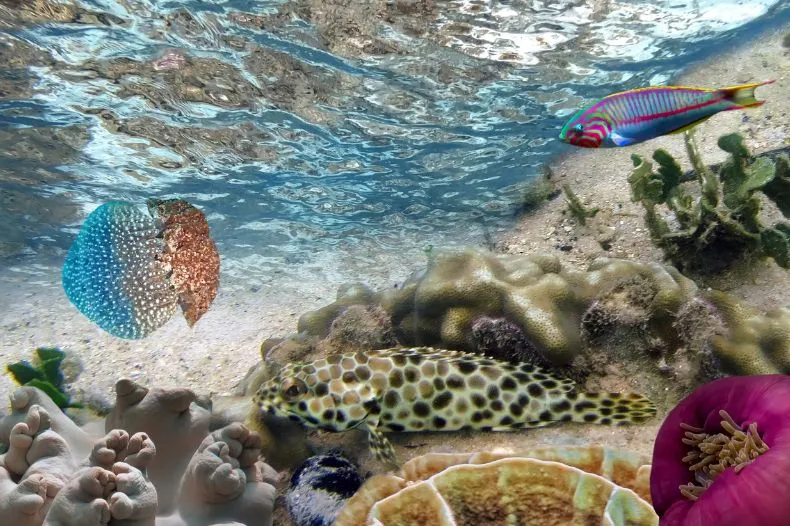
Human activities have exerted significant pressure on the delicate marine environment of the Black Sea, resulting in various adverse impacts on its ecosystems.
The region’s once-thriving biodiversity has faced considerable challenges due to factors such as pollution, over-fishing, habitat degradation, and the introduction of invasive species.
Pollution poses a major threat to the Black Sea’s marine environment, with industrial and agricultural runoff introducing pollutants such as heavy metals, pesticides, and nutrients into the water.
These pollutants can lead to eutrophication, harmful algal blooms, and oxygen depletion, disrupting the balance of marine ecosystems and threatening the survival of marine species.
Over-fishing is another critical issue facing the Black Sea, with unsustainable fishing practices depleting fish stocks and disrupting marine food webs. Targeted species include commercially valuable fish such as anchovies, sprat, and turbot, as well as non-target species caught incidentally in fishing gear.
Habitat degradation, primarily caused by coastal development, dredging, and marine construction projects, has also had a detrimental impact on the Black Sea’s marine environment.
Destruction of coastal habitats such as wetlands and mangroves diminishes essential breeding and feeding grounds for marine species, reducing overall biodiversity and ecosystem resilience.
The introduction of invasive species, either intentionally or accidentally, further compounds the challenges facing the Black Sea’s marine ecosystems.
Invasive species can out-compete native species for resources, disrupt ecological processes, and alter habitat structures, leading to cascading impacts throughout the food web. Despite these myriad challenges, one notable absence from the Black Sea’s marine environment is the great white shark.
Historically, there have been no confirmed sightings or documented evidence of great white sharks in the Black Sea.
However, ongoing research and monitoring efforts are necessary to assess the potential impacts of human activities on the Black Sea’s marine environment and to implement effective conservation.
Reflections on Shark Presence in the Black Sea
In conclusion, while the Black Sea boasts a diverse array of marine life, the presence of sharks remains notably absent. Despite historical speculation and occasional reports, there is no substantiated evidence of great white sharks inhabiting these waters.
The unique environmental conditions of the Black Sea, including its limited connectivity with surrounding bodies of water, lower salinity levels, and anoxic deeper layers, create an ecosystem that is less conducive to supporting shark populations compared to other marine regions.
While the absence of large predatory sharks may contribute to the equilibrium of the Black Sea’s marine ecosystem, it also raises intriguing questions about the factors influencing species distribution and the future of its biodiversity.
Ongoing research and monitoring efforts are essential for gaining a comprehensive understanding of the Black Sea’s marine environment and the dynamics of its resident species.
Furthermore, the scarcity of sharks in the Black Sea underscores the importance of conservation efforts aimed at preserving and protecting this unique marine ecosystem.
Addressing threats such as pollution, over-fishing, habitat degradation, and the introduction of invasive species is crucial for maintaining the health and sustainability of the Black Sea’s biodiversity.
In light of these considerations, it is imperative to approach the topic of sharks in the Black Sea with scientific rigor and an appreciation for the complexities of marine ecosystems.
While the absence of great white sharks may disappoint some enthusiasts, it underscores the need for continued research, conservation, and stewardship to safeguard the Black Sea’s marine environment for future generations.
